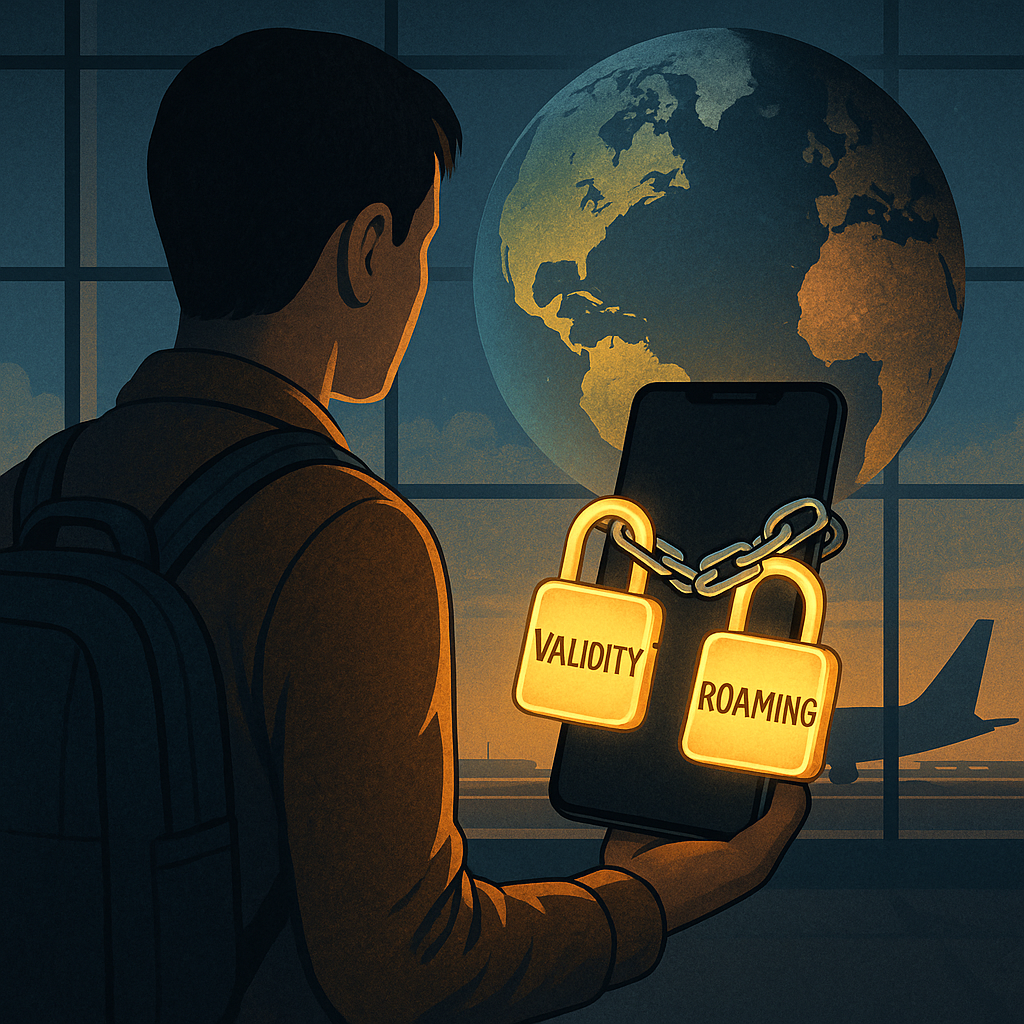“Sometimes, the cost of staying connected isn’t in the call — it’s in the condition.”
🌍 Introduction: The Global Traveler’s Hidden Cost
Imagine landing abroad, needing just roaming data or calls to stay connected.
You open your carrier’s app to activate a roaming pack — but it says:
“Please recharge your base validity plan first.”
You pause.
Why pay for a domestic validity recharge when you’re not even using local services?
This frustrating experience is not an accident. It’s part of a telecom business strategy that quietly extracts more money from global travelers — often without their awareness.
Let’s decode it step by step.
🧠 The Hidden Strategy Behind Forced Double Recharges
Global telecom providers use this two-step requirement as a revenue tactic, not a technical need.
Here’s what’s really happening under the hood 👇
💰 1. ARPU Maximization (Profit Per User)
Telecom companies measure their performance by ARPU — Average Revenue Per User.
Roaming users are high-value customers, so carriers stack mandatory charges:
- Base Plan Recharge – keeps your number “active” on paper
- Roaming Pack – unlocks actual international usage
By forcing both, they double revenue from a single session — without giving double value.
🧩 Think of it like buying a plane ticket — but being forced to buy an extra bus pass before boarding.
🔗 2. Bundled Dependency Strategy
This is a classic bundling trap:
You can’t access one feature (roaming) without paying for another (validity) — even if it’s irrelevant abroad.
The logic?
If roaming depended only on need, many travelers would skip validity recharges — so carriers tie the two together.
It’s not a bug — it’s a business model.
🧾 3. The “System Requirement” Myth
You might hear:
“Our system requires an active plan for roaming.”
In reality, that’s a policy excuse.
Roaming could be activated independently — and some carriers quietly allow this through special or corporate plans.
The “system can’t” narrative is a technical smokescreen for policy-based monetization.
🧠 4. Psychological Pressure Tactics
When you’re traveling, you’re vulnerable:
- You fear losing connection
- You need OTPs or access to family apps
- You can’t risk your SIM deactivation
Telecoms know this urgency. By inserting extra steps, they create psychological friction that pushes you to pay instantly without exploring alternatives.
💡 Smart User Playbook: How to Avoid the Roaming Trap
Here’s how savvy travelers around the world are escaping forced double recharges 👇
✅ 1. Request a Standalone Roaming Plan
Many carriers (especially in the UAE, India, UK, Singapore) offer hidden roaming-only packs.
Ask your provider directly:
“Do you have a standalone roaming add-on that doesn’t require a base plan validity recharge?”
Often, support agents can manually activate them — even if they’re not listed publicly.
🌐 2. Use Global eSIMs (No Validity Needed)
Switch to international eSIMs that bypass traditional operators:
They provide data-only roaming across 150+ countries.
No local validity, no hidden fees — just instant connectivity.
🌍 3. Leverage Regional Roaming Zones
Some regions offer unified roaming:
- EU: “Roam Like at Home” — one plan covers all EU countries
- GCC: Shared roaming packs (UAE, KSA, Qatar, Bahrain, Oman, Kuwait)
- ASEAN & Africa: Cross-border packs on selected networks
These regional alliances let you roam freely — without double payments.
🔍 4. Always Read the Fine Print
Before you travel:
- Check if roaming requires a base validity plan
- Confirm how long validity lasts abroad
- Verify whether SMS/voice is included
A quick check can save you from paying twice for one service.
⚖️ Why It Matters: Transparency Over Tricks
This isn’t just about $10 or AED 30 — it’s about fairness and transparency.
When companies hide revenue traps behind technical language, they exploit information gaps.
Every user deserves the right to:
- Pay only for what they use
- See clear pricing
- Choose flexible plans
Until regulation catches up, awareness is your strongest defense.
🧭 Important Takeaway
If your carrier forces a validity recharge before a roaming pack, it’s not about “system rules” — it’s about revenue design.
So next time you travel:
- Question mandatory recharges
- Compare global eSIMs
- Ask for standalone options
- Share this knowledge with others
Awareness saves money — and power.

